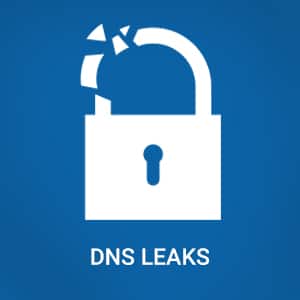The DNS or Domain Name System is part of the internet’s backbone. The devices that are equipped with the internet capability use IP addresses to communicate with one another. as we said earlier, IP addresses are unique numeric addresses that identify resources on a network, and these include websites. But for us(humans) we find it hard to remember these IP addresses and hence we use words. For instance, we type www.google.com to access the Google search engine. But on the internet, the servers don’t understand the words. Instead, they understand IP addresses. To solve this issue, a DNS translates the website name to the specific IP address. As many analogues describe it, a DNS is like a phone directory for the internet – type a name, and it will give you its corresponding number.
Nguy hiểm liên quan đến DNS
There are many dangers related to DNS and can range from security to privacy issues. Below is a DNS danger that occurs when connected to a VPN or an anonymizing service.

When using a VPN, your data traffic is encrypted, and your actual IP address is masked from prying eyes. Hiding your real IP address involving using the VPN’s DNS server to serve your internet requests. But sometimes this is not what happens as your internet request ends up being serviced by your ISP. This is what is called a DNS leak, and it’s a privacy risk. An operating system can cause a DNS leak; for instance, Windows OS gets confused when resolving DNS issues, and it ends up using the default ISP’s DNS. Another cause can be attributed to the fact that the VPN doesn’t support the IPv6 addresses, and hence it can’t handle their requests. Instead, it lets the OS handle them via your ISP.
Bên cạnh rò rỉ, còn có những mối nguy hiểm DNS khác
Tấn công DDoS
DDoS or Distributed denial of service attacks also affects the DNS. This is because a DNS represents a central point where the network can be choked. These attacks usually happen if the DNS infrastructure can’t service requests directed to it. In this case, the DNS server will be overloaded, and its performance will decrease to the point that it’s disabled. When this happens, users will be unable to access the services via the DNS server and hence a denial of service. Attackers can use botnets to populate a DNS server with requests to a point where it breaks down. To avoid DDoS attacks, use a DNS with adequate infrastructure and security. Reputable VPNs manage their DNS servers and hence offer excellent services.
Ngộ độc bộ nhớ cache
Đôi khi, bạn có thể không truy cập vào máy chủ DNS theo cách thời gian thực. Để cải thiện hiệu suất, dữ liệu DNS có thể được lưu vào bộ nhớ cache và điều này giúp giảm tải trên các máy chủ khi bạn đang truy cập cùng một tài nguyên. Mặc dù điều này cải thiện thời gian phản hồi, bộ nhớ cache DNS có thể bị nhiễm độc. Ngộ độc bộ nhớ cache là tình huống tội phạm mạng khai thác lỗ hổng trong các máy chủ DNS cấu hình kém và tiêm thông tin độc hại vào bộ đệm DNS. Thông tin này có thể bao gồm DNS của họ. Chẳng hạn, chỉ riêng điều này là đủ vì người dùng truy cập bộ nhớ cache bị nhiễm độc sẽ được chuyển hướng tự động đến miền của kẻ tấn công. Tên miền này có thể chứa các trang web giả mạo và người dùng sẽ không biết liệu họ có đang bị lừa đảo hay không.
To avoid the DNS dangers, always use reputable DNS providers and VPNs that manage their DNS infrastructure. You should also know that a DNS can log your IP address, your location, what you are doing online and can identify your ISP. This is a serious privacy issue, and you should only choose providers with Zero DNS logging.


